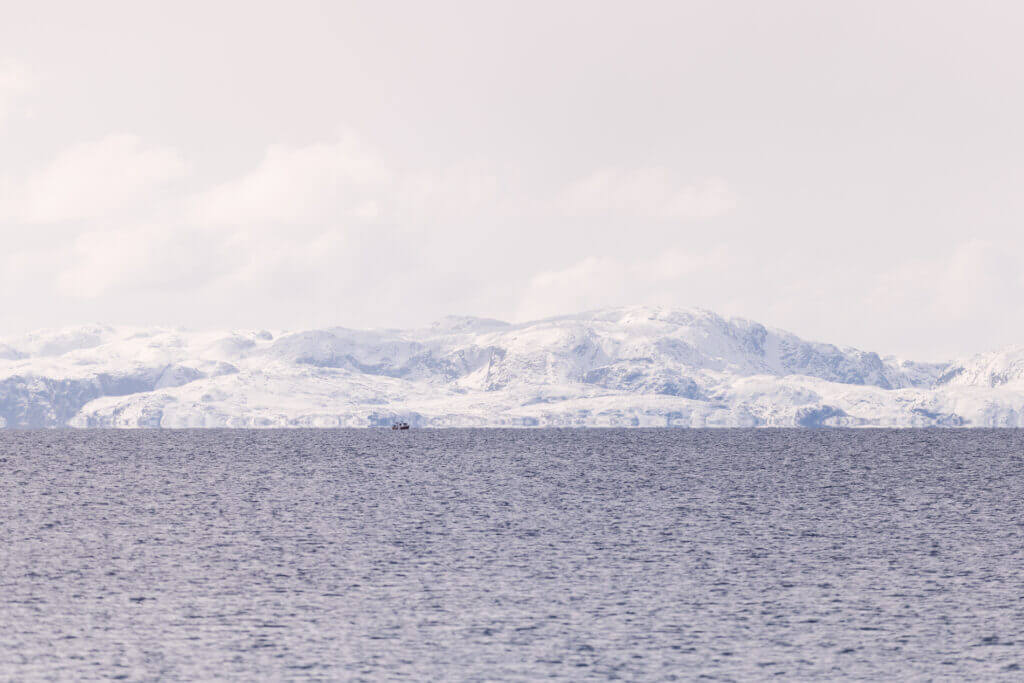Our Work and Approach
Birgejupmi employs a holistic approach, weaving together Indigenous Knowledge and scientific methods to address complex challenges in Arctic coastal regions. Our work fosters collaboration and co-production of knowledge for sustainable futures.
Bridging
Knowledge
Systems
At the heart of Birgejupmi lies the principle of “Two-Eyed Seeing” – learning to see from one eye with the strengths of Indigenous knowledges and ways of knowing, and from the other eye with the strengths of Western knowledges and ways of knowing… and learning to use both these eyes together, for the benefit of all.
Our research is organized into interconnected teams, each focusing on a critical aspect of Arctic sustainability, from ethical research practices to the impacts of climate change and the empowerment of youth voices. We emphasize relational approaches, recognizing the deep connections between people, communities, and the environment.
This collaborative framework allows us to build a more comprehensive understanding and develop solutions that are both scientifically robust and culturally relevant, respecting the self-determination of Indigenous peoples in Sápmi and Kalaallit Nunaat.

Explore Our Work Packages
Partner: Saami Council
This workpackage will identify knowledge gaps and research needs in Arctic coastal communities, provide replicable frameworks for research initiatives that support collaborative knowledge creation, and assess and identify best practices for co-creative/co-productive methods and their implementation within a circum-Arctic scope.
Learn morePartner: UiT - The Arctic University of Norway
WP2 aims to assess changes in human-species and ecosystem interactions in the Varanger and Porsanger fjords, evaluate current management of red king crab, pink salmon, and seals, revitalize Sámi Indigenous Knowledge on seals, and strengthen pan-Arctic Indigenous and local knowledge exchange on the marine environment.
Learn morePartner: University of Copenhagen
This work package contributes to uncovering silenced traditional IK and local knowledge within archival records from Arctic coastal communities, a deeper understanding of the relational values to environment via connections between art, healing, and the natural world, and innovative and multimodal methods to strengthen the visibility of IK and local knowledge systems.
Learn morePartner: Research Institute for Sustainability at GFZ (RIFS)
The project aims at assessing the impact -including opportunities and challenges- of climate change mitigation measures as experienced by young people living in Finnmark. In doing so, the project wants to collaboratively engage and understand young people’s vision of future in relation to the expansion of power production and wind energy projects in the Arctic.
Learn morePartner: UiT - The Arctic University of Norway, Indigenous Voices
WP5 will co-develop future marine resources management and governance options informed by TEK, scientific and local knowledge through multi-stakeholder dialogue to address evolving fjord ecosystems, building on the work of WP2.
Learn morePartner: UiT The Arctic University of Norway
WP6 will explore and implement innovative approaches to transform the roles of museums, archives, and libraries, positioning them as new knowledge stewards/new Elders, and foster a shift in the interactions among knowledge centers and coastal Arctic communities.
Learn morePartner: Sámi Allaskuvla
WP7 will analyze the link between gender asymmetries (female out-migration leaving young men behind in higher education and art production) and existing forms of Indigenous education and knowledge validation.
Learn morePartner: University of Tartu
WP8 supports young people in Arctic coastal areas to take an active role in shaping their communities’ future in response to climate change and social challenges.
Learn morePartner: Dáiddadállu
WP9 Birgejupmi Through Art emphasizes art and craft as a tool of in one's environment, as a means of political survival and as a means of strengthening Indigenous voices and land and sea relations.
Learn morePartner: Saami Council
This WP ties into the work done on WP1, and cover reflexive ethics assessment and explicit engagement with methodological approaches throughout the project to support the development and application of co-creative and collaborative methods across all WPs and feedback insights to adjust project design continuously, promoting ethical and context-appropriate research practices and meaningful outputs.
Learn morePartner: Árvu AS
WP11 focuses on delivering a comprehensive communication and design package that enhances the visibility, credibility, and effectiveness of Birgejupmi.
Learn morePartner: Árvu AS
Building on WP11, WP12 will monitor and revise the CDEO strategy as needed in close collaboration with project partners and continue to support and advise the consortium on effective communication and outreach.
Learn morePartner: University of Oulu
WP13 is dedicated to ensuring the overall coordination and successful delivery of the project.
Learn morePartner: University of Oulu
WP14 leads the final phase of the Birgejupmi project, ensuring smooth coordination, thorough evaluation, and high-quality results.
Learn more